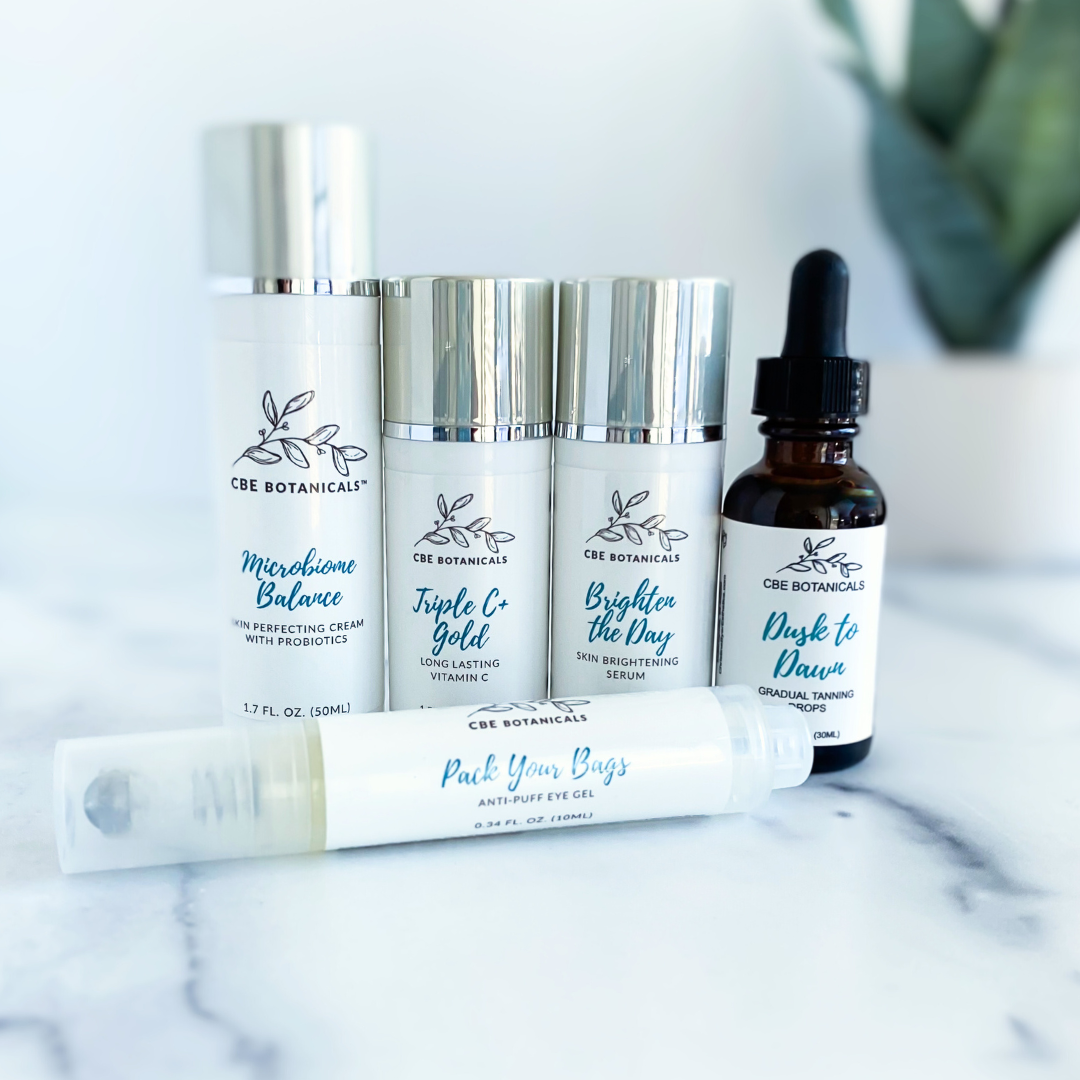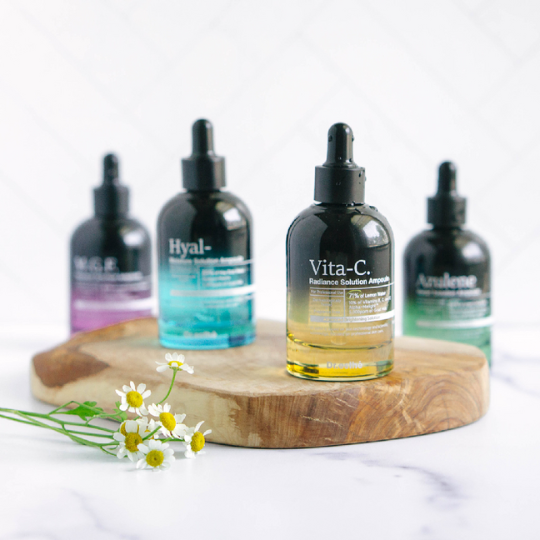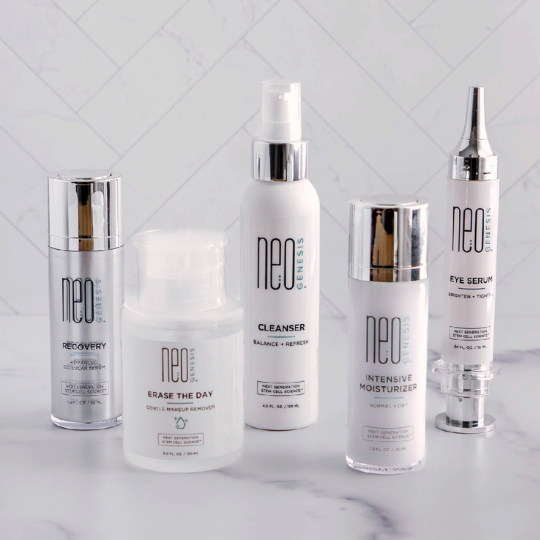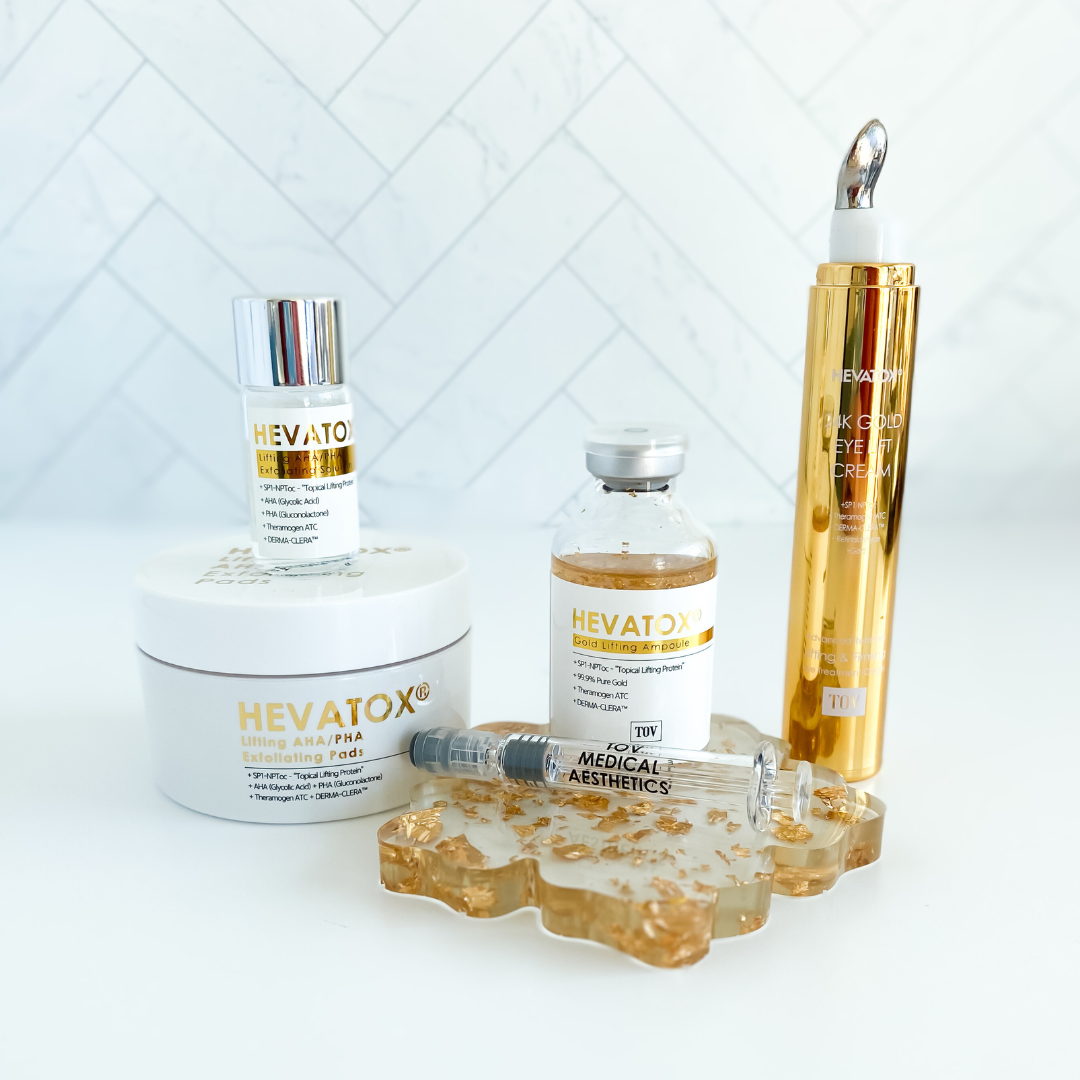Let's start by cutting the hazard zone tape and emphasizing that while you should follow a few guidelines regarding Vitamin C use, it's still an incredible ingredient. In fact, it's one I glow on and on about.
Why?
Because vitamin C is an antioxidant and interferes with damage caused by pollutants. Think of it as a bouncer working to keep free radicals away from your skin.
With a bit of guidance, you can get all the perks of Vitamin C and avoid any adverse side effects.
The Intentions of Vitamin C
The topical application of Vitamin C is a long-celebrated step in skincare. Vitamin C products can help restore vitality in aging skin by reducing the release of harmful cytokines in our immune system.
But since our bodies don't synthesize Vitamin C, little remains for the skin after eating Vitamin C-rich food. As a result, topically applying Vitamin C is the most efficient way to introduce it to our skin.
When applied correctly, Vitamin C can produce a more even skin tone, reduce premature wrinkles, and diminish pigmentation caused by sun exposure and post-inflammatory conditions.
Potential Negative Effects of Vitamin C
Of course, all good things in excess can lead to negative side effects. The good news is that they're easy to fix. You might just need to switch to a gentler vitamin C formula.
Wondering if you're misusing your topical Vitamin C or experiencing some adverse side effects? Ask yourself the following.
Is your skin flushed or irritated?
Redness or tingling of the skin can occur when you mix vitamin C with other acidic skincare (think alpha-hydroxy acids) or overuse it—whether too high of a concentration or too much at once.
Are you experiencing more blackheads than usual?
If you're experiencing more blackheads in the T-zone, it could be from your vitamin C formulation. Vitamin C requires extreme stability to be effective, so the formulations include ingredients like ferulic acid to help stabilize it. However, this ingredient can be problematic for break-out-prone skin.
Is your skin flaky or dry feeling?
If your skin has become flaky, it could be from the exfoliation properties of vitamin C. Too much vitamin C in your routine causes increased cellular shedding. And even if you apply moisturizers, they might not be as effective at penetrating flaky layers. The end result is often a dehydrated and irritated surface.
How to Reverse the Negative Effects of Vitamin C
Fear not—you can easily manage, correct, and avoid the side effects mentioned above. All you need is some advice and high-quality products to help get you back on track.
Gradually Get Back to Daily Use
There's no need to completely abandon your vitamin C if you have any of the issues I listed above.
Keep applying a thin layer weekly, followed by every few days. Then gradually increase the application until your skin can handle daily use. A product like CBE Botanicals Brighten the Day Serum can help during this process.
Use a Lower Concentration
The ideal concentration for most skin is 10-20%, with a pH of 4. A lower percentage can hinder desired results, and using more can lead to the negative effects mentioned. For sensitive or breakout-prone skin, a product with a higher pH between 5-6 will reduce redness and blackheads, like Dr. Esthé's Vita-C Radiance Solution.
Mix and Mingle Correctly
Make sure you use retinol and other acids separately from vitamin C. For example, try using vitamin C during the day and retinol at night to avoid skin irritation.
But layering vitamin C serum with a hyaluronic acid serum can produce ideal results. Try applying a thin layer of vitamin C serum and then Dr. Esthé's HYAL Moisture Solution two minutes later (before moisturizing) to reduce flakiness.
Final Tips for Vitamin C Use
- Use high-quality products that are packaged correctly. Vitamin C can easily break down when exposed to heat, light, or air—especially with low-quality products. But that won't happen with CBE Botanicals Tripe C + Gold Serum. Engineered with such an effective delivery system for pure ascorbic acid with support from gold and glutathione, it's 100% stable and retains 100% efficacy until it's gone.
- Apply sunscreen as your final step daily. Increased photosensitivity can occur when using vitamin C, so you'll need sun protection. I love Dr. Esthé Sun Protection Mild SPF 50, which is great for those with breakouts or skin sensitivities.
- Observe your skin closely and make the suggested modifications if needed. Get personalized support for your questions when you join the Christine Byer Beauty Club.
Now You C It
Vitamin C is an esteemed ingredient for all to incorporate into our skincare routines when used with awareness. Want to get more support with your skincare journey? I offer a 14-Day FREE preview with full access to everything in the Christine Byer Beauty Club. If you don’t find value in your membership, cancel within 14 days at no charge. Click here to find more great articles like this on my blog.








